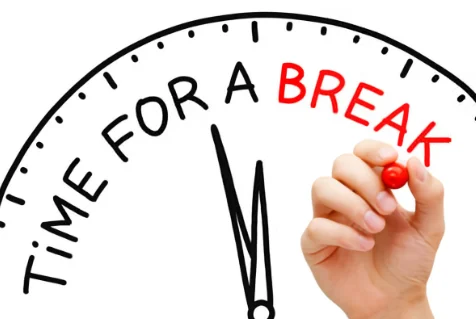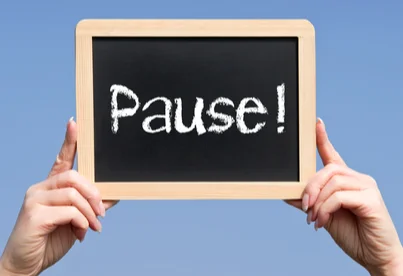Students often find it difficult to know when to take a break. This is due to them not understanding the importance of breaks and what they provide. With all the academic demands of the university student, this can be considered very demanding.
With that being said, below are some tips on how long should a study break be and how many per day.
What is a Study Break?

A study break is a short break from studying, usually lasting between 15 minutes to an hour and a half.
The purpose of a study break is to give the brain time to rest, refresh and reboot so that it can be used again when you return to work.
Study breaks can help you stay focused, especially if you are having trouble concentrating on your studies. Your study breaks should be productive to you; increase your morale and recharge.
Taking a break from studying will allow your brain to relax and release some of the stress that might have built up during the day. It also gives your body a chance to relax and unwind after staying all night studying or working on homework assignments.
You should take your break every 30 minutes or so during the day as well as before bedtime at night to get the best results possible out of each session spent studying (and especially if this is going to be one of many times during the day that you are using this technique).
How Many Study Breaks Should You Have?
The amount of time you spend studying and doing homework is a personal decision. Some students find taking frequent breaks from their studies helpful, while others prefer to stay focused on their work.
As long as your schoolwork isn’t interfering with your social life or other aspects of your life, you should feel free to take as many breaks as you want.

However, some schools may have specific policies regarding study breaks. If this is the case, check with your school’s academic advisors before taking any additional breaks.
The number of study breaks you need also depends on your personality and how well you like to study in general. Some people enjoy reading while others prefer watching TV or listening to music.
If you are a person who likes to watch TV or listen to music during breaks, then this is something that can get incorporated into your daily schedule without any problem.
How Long Should a Study Break Be?
When trying to study for a test, you need to ensure that your study break is long enough. If it’s too short, you will end up getting bored and unable to focus on the material.
But if your break is too long, you won’t be able to get any studying done during the day and will only have time for more procrastination.
You should set aside at least 30 minutes each day for studying. This can get broken up into two or three 15-minute sessions per day that you can fit between other tasks like eating lunch or going to the bathroom.
You should also set aside some time in the morning before school or work starts just so that you don’t feel rushed when it comes time for your study session.
Taking a day break from studying is one of the best ways to keep your brain fresh. To get the most out of your study time, take regular breaks. You can do this by taking short breaks or even longer ones.
Short Break

It’s ideal for taking short breaks every 30 – 60 minutes. This will give you enough time to clear your mind, refresh your energy and get your blood flowing again.
Long Break
If you feel overwhelmed with work or just need some time away from studying for a few hours, consider taking an entire day off from studying altogether.
This can be a great way to clear your mind and recharge your batteries before returning to them after work or school on another day.
How Long Should Study Sessions be Between Breaks
The length of a study session depends on the material being studied and the student’s attention span. If you are studying for a test and need to absorb information quickly, taking short breaks between each section may be best.
However, if you are studying for a longer period, such as an entire semester or longer, then it is recommended that you take longer breaks between sections.
Some students believe they can learn in one sitting or one day, but this will not always be the case. Students who have difficulty focusing during the day may also have difficulty focusing during the night.
It is important to allow yourself time to rest after completing a long study session so that your brain can process what has been learned and prepare itself for another day of learning.
Is Taking a Day Break from Studying Ok?

Taking a day break from studying is not an option. It is a must if you want to pass with good grades. Taking a day off from studying can result in losing your concentration, which can lead to poor performance in the exam.
If you are taking a day break from studying, it is better to do extra work on that subject before taking a break. That way, when you come back, it will be easier for you to focus on the subject and study without distractions.
Taking a day off from studying doesn’t mean that you won’t be able to get good grades. It can actually help you increase your GPA by giving you more time to study and prepare for tests, quizzes, and other assignments.
Some students find it easier to study when they are not distracted by other things around them and instead focus purely on their studies.
Others work better in groups so they can share ideas and information with others who are also taking a break from studying.
A Table Showing How Many Study Breaks and Time for Each
| Study Breaks | Time |
| Morning Session | 30 minutes |
| Afternoon Session | 1 hour 30 minutes |
| Evening Session | 1 hour 30 minutes |

